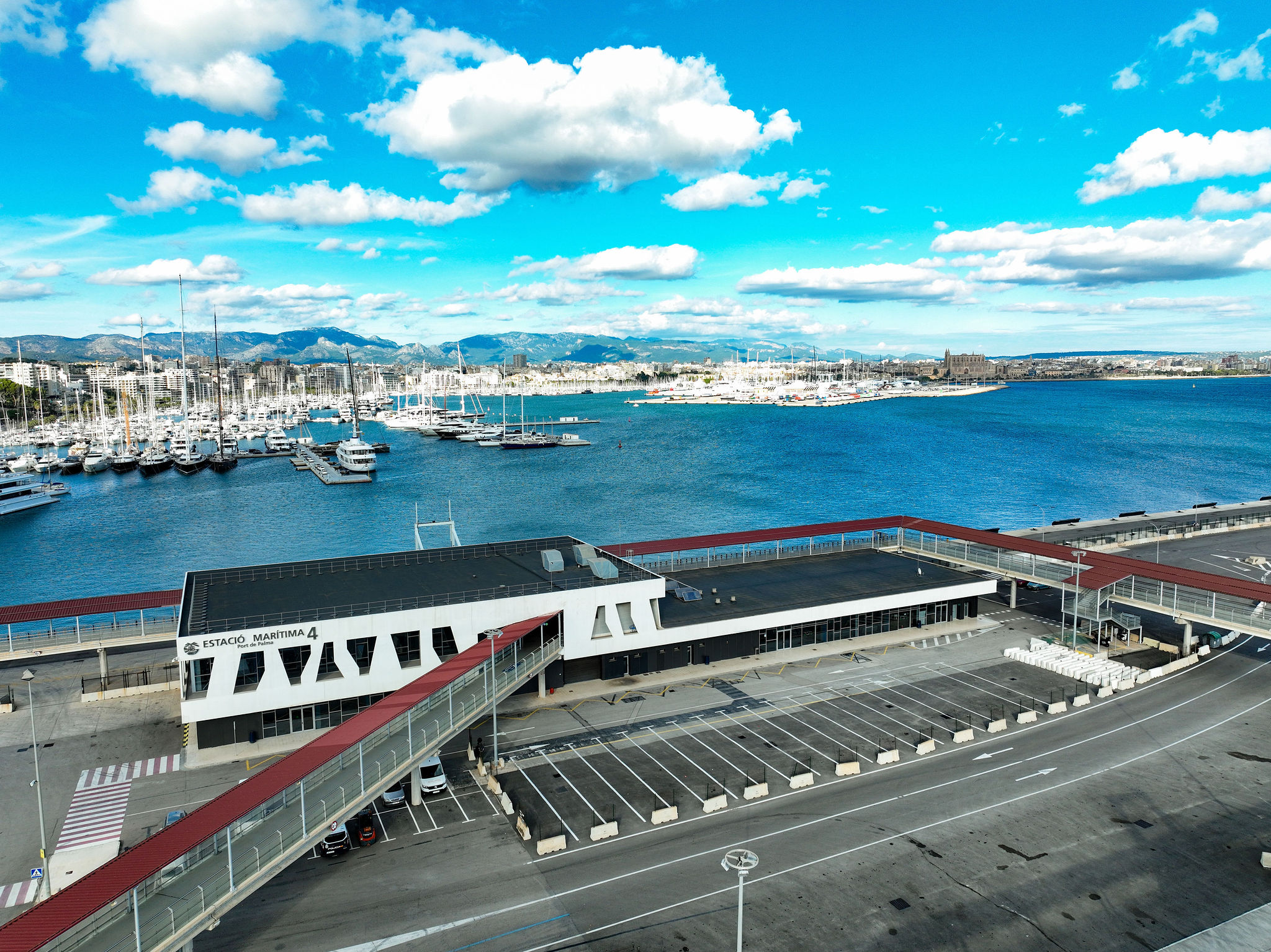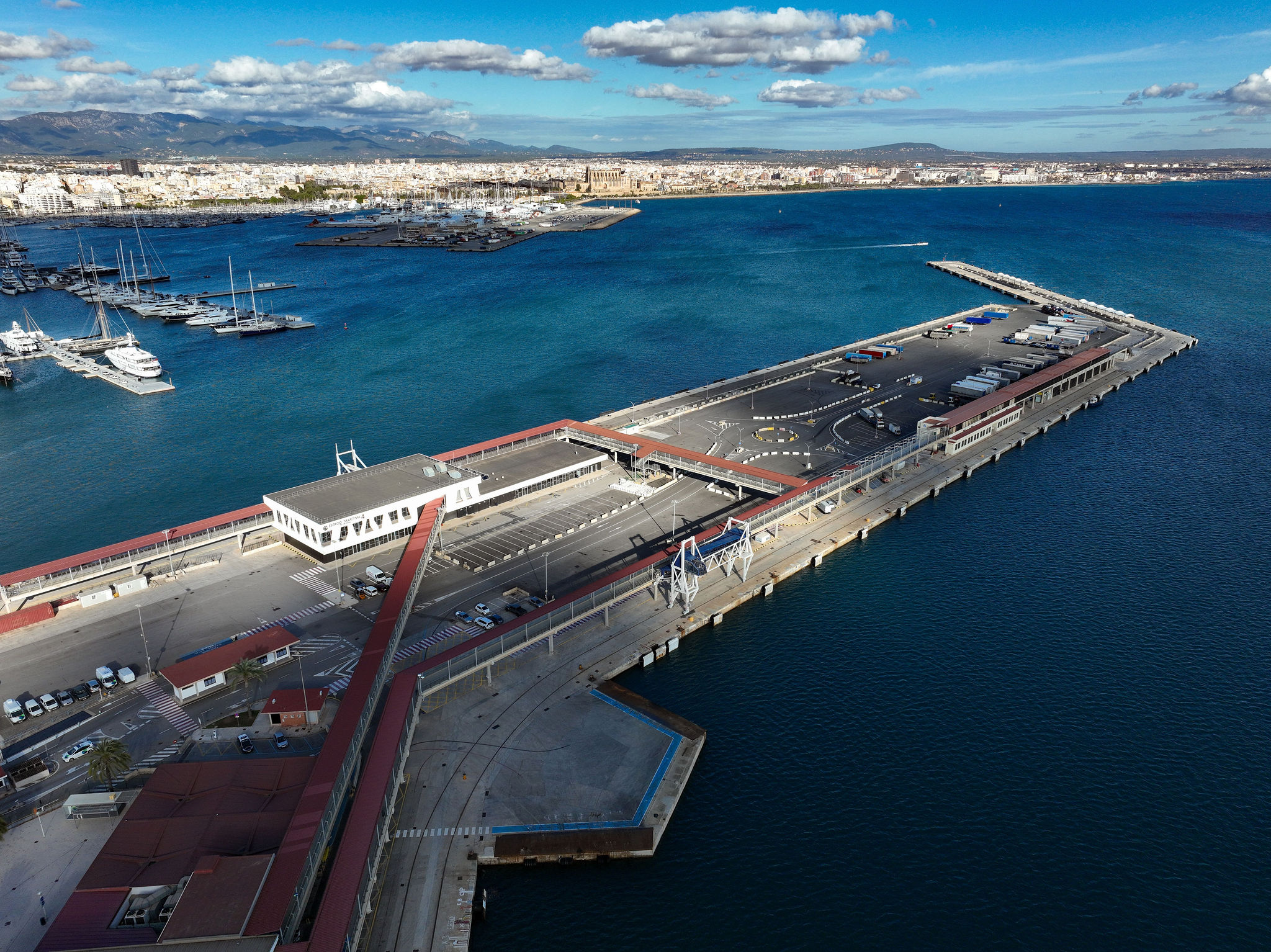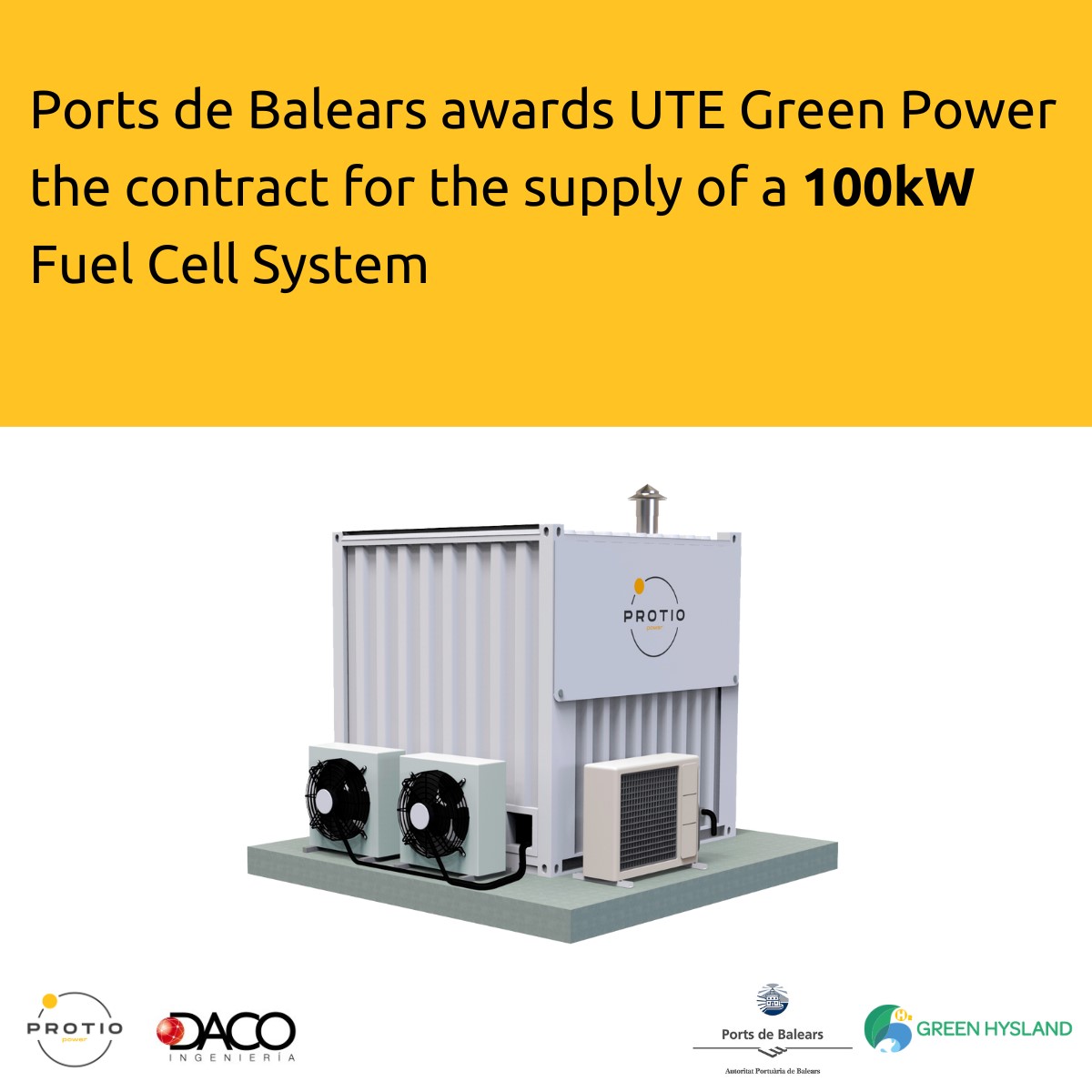
A green hydrogen fuel cell will supply electricity to Maritime Terminal No. 4 in the Port of Palma
The goal is to reduce CO₂ emissions in line with EU guidelines for the 2030 Agenda
Palma
24/10/2024- Environment and CSR
- Technology and innovation
As part of its efforts to reduce the emission of CO₂ gases into the atmosphere, the Port Authority of the Balearic Islands (APB) has started work on the installation of a green hydrogen fuel cell to supply electricity to Maritime Terminal No. 4 (EM4) in the port of Palma. The project follows the guidelines of the EU 2030 Agenda within the framework of the Green Hysland project, an initiative supported by the governments of Spain and the Autonomous Community of the Balearic Islands.
Hydrogen produced using renewable energy at the hydrogen production plant in Lloseta, Mallorca, will be delivered to the installation daily by truck. It’s estimated that the 100 kW fuel cell will reduce CO₂ emissions by 470 tonnes per year, consume 40 tonnes of hydrogen per year, and have sufficient capacity to store the fuel required for the maritime terminal to operate for a full day.
The fuel cell will be connected to the electricity mains in order to supply the port grid with sufficient power for EM4, and any surplus will be used to supply the other maritime terminals nearby: EM1, EM2 and EM3. The fuel cell enclosure will include an area for the truck to unload, as well as a separate space for the high-pressure storage of gas.
The contract, valued at over 760,000 euros, has been awarded to Green Power, a temporary joint venture formed by Protio Power and Daco Ingenieria. In addition to supplying and installing the fuel cell, the successful bidder is required to measure its carbon footprint and propose measures to reduce or offset it.
Sustainable buildings
As part of its environmental strategy, the APB is committed to being a benchmark for sustainability and protecting port surroundings by ensuring its maritime terminals generate their own electricity supply using renewable energies. The initiative will go hand in hand with other measures to improve the energy efficiency of EM4, such as installing photovoltaic panels on its roof.










